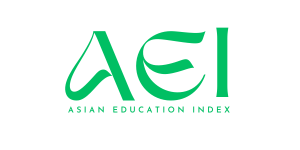The Importance Of Background Knowledge In Enhance ING Reading Comprehension in SLA
DOI:
https://doi.org/10.62480/jpip.2024.vol39.pp13-16Keywords:
Reading comprehension, background knowledge, summarization strategiesAbstract
This study explores the impact of background knowledge on reading comprehension among second-year English major students at Shakhrisabz State Pedagogical Institute. The research examines the role of summarization, oral discussions, and comprehension questions in understanding expository and narrative texts. Participants were divided into four groups: two experimental groups engaged in summarization and oral discussions, while two control groups answered comprehension questions. Pre- and post-tests were conducted to evaluate comprehension gains. Findings highlight the critical role of background knowledge, particularly in comprehending expository texts. Summarization improved students' ability to synthesize and integrate information, while oral discussions activated collective knowledge and fostered collaborative schema-building. Narrative texts, with their universal themes, relied less on prior knowledge but still required cultural scaffolding for deeper understanding. The results underscore the importance of pre-reading strategies, schema activation, and tailored instructional approaches to enhance reading comprehension in second-language learners. Implications for teaching practices and curriculum design are also discussed
References
Asmahan Jameel Hattab Alali. Dina Abdul Hameed Al-Jamal, Imad Sa’di. (2020). Nativized
Texts: Cultural Clues' Role in Improving EFL Undergraduates' Reading Comprehension.
Universal Journal of Educational Research.
Beauty B. Ntereke, Boitumelo T. Ramoroka. (2017). Reading competency of first-year
undergraduate students at University of Botswana: A case study. Reading & Writing.
Eurydice Bouchereau Bauer, Juliana Arazi. (2011). Promoting Literacy Development for
Beginning English Learners. The Reading Teacher.
Funmilayo M. Oguntade. (2021). Content analysis of levels and aspects of comprehension in
West African senior secondary school examination. Reading & Writing.
Jennymae T. Manggasang. (2021). Level of reading comprehension among Grade 11 learners
basis for instructional material development.Internatonal Journal of Social Science and
Human Reasearch.
Lesaux, Nonie K.; Harris, Julie Russ. (2017). An Investigation of Comprehension Processes
Among Adolescent English Learners with Reading Difficulties. Topics in Language
Disorders.
Meilani Harfika Sari, Susetyo, Noermanzah, Dian Eka Chandra Wardhana, Dewi
Kusumaningsih. (2020). Understanding the Level of Students' Reading Comprehension
Ability. Universal Journal of Educational Research.
Meskill, C., & Mossop, J. (2000). Technologies use with ESL learners in New York State:
Preliminary report. Journal of Educational Computing Research.
Nurul Lailatul Khusniyah. (2020) The Interplay Between Meta-Cognitive Strategy and SelfRegulation in English Reading Comprehension. Proceedings of the 2nd International
Conference on Islam, Science and Technology (ICONIST 2019). Series:Advances in Social
Science, Education and Humanities Research.
Valizadeh, M. (2021). The Effect of Reading Strategies Instruction on EFL Learners’ Reading
Performances. Shanlax International Journal of Education.
Downloads
Published
Issue
Section
License

This work is licensed under a Creative Commons Attribution-NonCommercial 4.0 International License.
User Rights
Under the Creative Commons Attribution-NonCommercial 4.0 International (CC-BY-NC), the author (s) and users are free to share (copy, distribute and transmit the contribution).
Rights of Authors
Authors retain the following rights:
1. Copyright and other proprietary rights relating to the article, such as patent rights,
2. the right to use the substance of the article in future works, including lectures and books,
3. the right to reproduce the article for own purposes, provided the copies are not offered for sale,
4. the right to self-archive the article.













